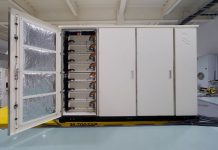
The Timber, Furnishing and Textiles Union (TFTU) has welcomed the federal government’s decision to expand the powers of the Anti-Dumping Commission (ADC), allowing it to respond more effectively to sudden import surges that could affect Australian industries.
In a news release, the union said the reform strengthens Australia’s trade defence framework at a time of global uncertainty, pointing to product diversions from the United States, persistent oversupply, and rising trade tensions as key risks for local jobs.
“This move sends a clear signal that the Australian Government has the backs of Australian industry and Australian workers,” said Travis Wacey, who represents the TFTU on the Government’s International Trade Remedies Forum.
Under the change, the ADC will now be responsible for safeguard investigations, a function previously managed by the Productivity Commission, which the union noted had rarely exercised the power on behalf of Australian industries. The TFTU said the shift was critical for protecting manufacturers and workers from the impact of volatile global trade patterns.
“In an uncertain global environment, we must be ready to respond to sudden import surges that could wipe out entire industries and workforces,” Wacey said.
“Australia’s manufacturing sector has shown resilience through globalisation and COVID, but we need government to defend our global trade rights to meet the challenges of today’s unprecedented conditions. This is a strong start.”
The union, which represents workers across timber, pulp and paper, building products, furniture, textiles, clothing and footwear, said fair trade protections were central to safeguarding jobs and local manufacturing.
It has worked alongside the Australian Workers’ Union, the Australian Manufacturing Workers’ Union, the ACTU and industry partners to push for the reform.
“Our industries are in the firing line in this age of trade uncertainty – with global furniture, paper, timber, textiles, clothing and footwear suppliers to the US already eyeing new markets, including Australia, which may lead to disruptive and intermittent import surges,” Wacey said.


















